11 books by Tito Perdue
Requirements: ePUB, PDF; .MOBI reader, 20 MB
Overview:Tito Perdue was born in 1938 in Chile, the son of an electrical engineer from Alabama who was working there at the time. The family returned to Alabama in 1941. He graduated from the University of Texas in 1961, and spent some time working in New York City, an experience which garnered him his life-long hatred of urban life. Tito has devoted himself full-time to writing since 1983. His first novel, 1991’s Lee, received favorable reviews in The New York Times, The Los Angeles Reader, and The New England Review of Books. Since then he has published nine other novels, including Morning Crafts (2013), which was also published by Arktos. In 2015 he was awarded the H. P. Lovecraft Prize for Literature.
Genre: Fiction > General Fiction/Classics
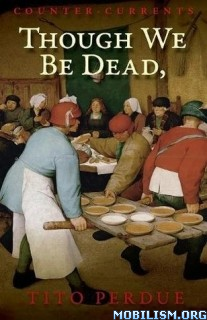
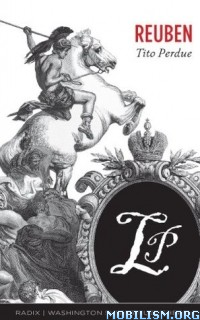
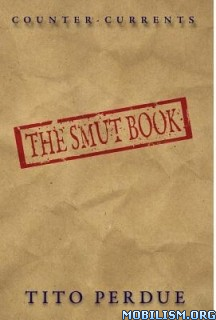
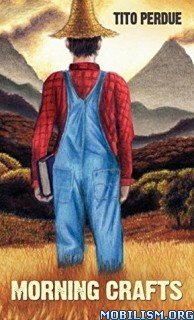

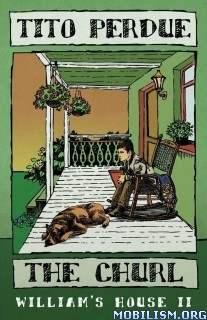
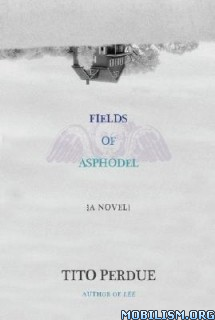
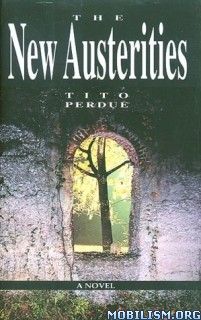

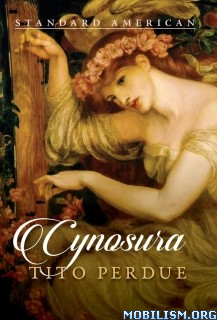
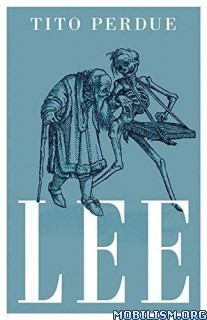
Though We Be Dead, Yet Our Day Will Come by Tito Perdue
Tito Perdue’s Though We Be Dead, Yet Our Day Will Come is a novella about the advancement of American civilization as revealed by the sixtieth high school reunion of the Class of 1956 from a small Alabama town. The narrator sardonically catalogs the “progress” of his classmates in terms of divorces, abortions, addictions, suicides, arrests, and sex change operations, which progressive thinkers tend to regard as negligible epiphenomena of long-overdue revolutionary advances in social justice and self-actualization. This is a book for those who are not quite ready to celebrate the end of history just yet.
Reuben
Under the tutelage of Lee Pefley, Reuben learned what must be done. And when the time came, he left Alabama and took up the task of conquering the world, or at least the Occidental share of it. This novel is a chronicling of Reuben s necessary, great, and terrible deeds.
The Smut Book
“This is what you will remember—where you were and what you did when face to face in the dark with certain persons. Everything else falls away, lost in the backwash of time.”—From the author
“Chances are, there’s more smut in the mind of the average reader than in the pages Tito Perdue’s The Smut Book. This is a gently wry novel about a pre-teen boy’s awakening interest in the opposite sex, set in 1950 in a small Alabama town. It is a world in which healthy youngsters grow up fast, barely contained by close families, hovering teachers, and chaperoned dances. But it seems as decorous as a Jane Austen novel from the vantage point of our hypersexualized, smut-inundated present, even though it was less than a lifetime ago.”
—Greg Johnson, author of Toward a New Nationalism
Morning Crafts
Thirteen-year-old Leland Pefley was minding his own business, enjoying a day's fishing near his father's farm in Tennessee, when the odd, well-dressed and well-spoken man from the city appeared, inviting Lee to accompany him to a more interesting place. Out of curiosity, Lee followed him, and found himself hustled off to a strange, rustic academy in the wilderness with a group of other boys, all of whom had been semi-abducted as he himself had been. None of them knew why they were there. Some believed they had been brought there to be murdered, or worse. The Academy, it turned out, is an actual school, run by eccentric, curmudgeonly teachers obsessed with training an elite band of boys who will grow up with a passion to preserve some vestige of genuine culture amidst the tide of democratic, egalitarian degeneracy which they see ruining the modern world. To this end, the boys' heads are stuffed, day in and day out, with mathematics, Ancient Greek and classical music, among other subjects. Rankling at first under the teachers' bizarre, authoritarian methods, Lee sticks around, knowing that he can slip away at any time he wants. But, for some reason, he doesn't, and before long, he finds that his teachers are starting to make quite a lot of sense...
The Builder (William's House Book 1)
Alabama in the late nineteenth century still labors in the “Age of Mules”, an era which demands hard labor for little return. William Pefley is intent on building a legacy amongst what he views as the godless and unworthy people of his county, a legacy of industry and a god-fearing family. In this first volume of the William’s House tetralogy, William must court and win the future mother of his children, borrow more money than he ever dreamed existed, and pit his wits against a landscape of blistering heat and shuddering cold. The Builder drops the reader into the world of the Confederate ghost, with preachers, liberated slaves, farmers, and an emerging middle class all fighting for survival against poverty and moral decay. Against a backdrop of Southern poverty in which the wound of the Confederate defeat still burns fiercely, William will have to draw upon every reserve of his resolve, religion, and strength of will to establish himself and his future family, or face losing everything he has worked for.
The Churl (William's House, Volume II)
The second volume of William's House focuses on Young Albert, the youngest addition to the Pefley family, and his formative childhood years. Albert's growing relationship with his family and the development of his perception of the world are set against the backdrop of William's continuing efforts to relentlessly pursue an increase in the Pefley family's fortune and reputation in Alabama at the beginning of the twentieth century. Albert's childhood unfolds in the heat and poverty of the recently defeated Confederacy, where war wounds still linger, and he must measure up to his father's exacting expectations of character and industry, or risk failing the family name William has worked so hard to establish. Tito Perdue was born in 1938 in Chile, the son of an electrical engineer from Alabama who was working there at the time. The family returned to Alabama in 1941. He graduated from the University of Texas in 1961, and spent some time working in New York City, an experience which garnered him his life-long hatred of urban life. Tito has devoted himself full-time to writing since 1983. His first novel, 1991's Lee, received favorable reviews in The New York Times, The Los Angeles Reader, and The New England Review of Books. Since then he has published nine other novels, including Morning Crafts (2013), which was also published by Arktos. In 2015 he was awarded the H. P. Lovecraft Prize for Literature.
Fields of Asphodel
From cult favorite author Tito Perdue—whom the New York Press called “America’s lost literary genius”—comes this new novel about the peculiar afterlife of Leland Pefley.
After a life of misdemeanors, Lee had hoped that death would bring an end to things; instead, he awakens anew into a very bad place full of cold weather, strange tortures, and some of history’s most hapless people. His one consolation? An opportunity to chase down his beloved wife, who preceded him in death a few years before he contrived his own.
Here, decadence meets its reward. And if the place bears certain resemblances to life in contemporary America, you can’t exactly blame Lee—he spent his whole (living) life railing against contemporary values and the ambient culture. Now equipped with his walking cane, a book of matches, a pair of pretty good shoes, and a tourist brochure, he makes slow progress through a landscape even more horrible than the one he deserves.
Perdue has been compared to both Faulkner and Beckett, and in Fields of Asphodel we are reintroduced to one of our true literary masters—and to Leland Pefley, antisocial and tactless, a truly powerful literary figure on a surreal, hilarious, and heart-rending search for true love.
The New Austerities
Come along on a bizarrely entertaining journey deep into the rotting soul of America. Lee Pefley, a man who make misanthopy look benevolent, decides to flee the decay and drudgery of New York city for his childhood Alabama. Accompanied by his beloved wife Judy ("short and possibly getting shorter"), $19,000 in hundred-dollar bills, a supply of pilfered library books, and a pistol, Lee sets out on a bleakly hilarious tour of the easter nstates. A passionate lover of classical literature, an incurable kleptomaniac, an overwrought paranoid, and a hopeless insomniac, Lee looks at the world through uniquely hallucinatory, and definitely not rose-colored, glasses. The view is spectacularly original.
Philip
A genius who has learned the hard way to hide his light under a bushel in postmodern New York City, Philip is a young protagonist with a soul from a bygone era. Slowly revealing himself in the stream-of-consciousness narrative to be a superb Classicist and a lover of his people despite themselves, Philip retains his public persona of ladies’ man and affably laid-back colleague for as long as he humanly can, no doubt as much out of old-fashioned courtesy and consideration as to keep the trauma of the Untergang des Abendlandes from messily breaking surface in his own inner dramaturgy.
Catalyzed, with a certain inevitability, by a contemporary corporate policy initiative with which a man of his caliber simply cannot pretend to make do, Philip takes leave of the last vestiges of materialism in his life, save his tailoring, and stoically and awkwardly strikes out into the discombobulating jungle of the space that was once America. Concentrating on an ever-narrowing circle of his own kind, among whom he seeks still to champion manful virtue and female honor in the understated ancestral manner, Philip simplifies and refines himself in mind until he reaches a singularity of sorts.
Cynosura
Arrogance and romance
Cynosura is a feverish love story between a non-ordinary Tennessee farm girl of supernal physical beauty and an estranged youth possessed of exceptional intellectual ambition.
The girl, a gifted and hard-working cellist, is a natural-born elitist, contemptuous, or anyway indifferent, to ordinary people. Her self-selected life’s mission is to identify the man to whom she will want to consecrate her life. She is sexual, intelligent, melancholy, efficient, and intuits that her life will be short.
The boy, preternaturally brilliant, is not in love with life. He chooses solitude so as not to have to compromise with friends (he hasn’t any) or colleagues. Value, he believes, derives solely from the mind and imagination, though he is too young, of course, to have developed a full philosophy. He abhors capitalist practice and strives for self-sufficiency at the price of poverty.
Their brief and explosive affair approaches transcendence.
Lee
After an absence of several decades, the aging and curmudgeonly Leland Pefley returns to his hometown to find that nothing is as he remembers it, and everything has gone to the dogs. Armed with nothing but a cane to ward away vice and to impose decorum and justice on the insolent decadence of his times, the erudite Lee sets out on a desperate quest to find a shred of intelligence in his contemporaries, prepared to beat it out of them if necessary. Propelled thence on a series of unlikely adventures, he finds himself at the heart of a story pitting nostalgia against modernity and the old against the new, in a scathing commentary on the decline of our society, and a hilarious and anguishing tale of an old man walking arm-in-arm with death.
The first edition of Lee was published in 1991 by Four Walls Eight Windows, and received excellent reviews in The New York Times, The Los Angeles Reader and The New England Review of Books. The second edition was published in 2007 by Penguin. This is the third
Download Instructions:
https://drop.download/kackrgve2cu8
https://filedot.to/fxhn9x7r9fz8
https://oxy.st/d/AANh
Trouble downloading? Read This.
Requirements: ePUB, PDF; .MOBI reader, 20 MB
Overview:Tito Perdue was born in 1938 in Chile, the son of an electrical engineer from Alabama who was working there at the time. The family returned to Alabama in 1941. He graduated from the University of Texas in 1961, and spent some time working in New York City, an experience which garnered him his life-long hatred of urban life. Tito has devoted himself full-time to writing since 1983. His first novel, 1991’s Lee, received favorable reviews in The New York Times, The Los Angeles Reader, and The New England Review of Books. Since then he has published nine other novels, including Morning Crafts (2013), which was also published by Arktos. In 2015 he was awarded the H. P. Lovecraft Prize for Literature.
Genre: Fiction > General Fiction/Classics











Though We Be Dead, Yet Our Day Will Come by Tito Perdue
Tito Perdue’s Though We Be Dead, Yet Our Day Will Come is a novella about the advancement of American civilization as revealed by the sixtieth high school reunion of the Class of 1956 from a small Alabama town. The narrator sardonically catalogs the “progress” of his classmates in terms of divorces, abortions, addictions, suicides, arrests, and sex change operations, which progressive thinkers tend to regard as negligible epiphenomena of long-overdue revolutionary advances in social justice and self-actualization. This is a book for those who are not quite ready to celebrate the end of history just yet.
Reuben
Under the tutelage of Lee Pefley, Reuben learned what must be done. And when the time came, he left Alabama and took up the task of conquering the world, or at least the Occidental share of it. This novel is a chronicling of Reuben s necessary, great, and terrible deeds.
The Smut Book
“This is what you will remember—where you were and what you did when face to face in the dark with certain persons. Everything else falls away, lost in the backwash of time.”—From the author
“Chances are, there’s more smut in the mind of the average reader than in the pages Tito Perdue’s The Smut Book. This is a gently wry novel about a pre-teen boy’s awakening interest in the opposite sex, set in 1950 in a small Alabama town. It is a world in which healthy youngsters grow up fast, barely contained by close families, hovering teachers, and chaperoned dances. But it seems as decorous as a Jane Austen novel from the vantage point of our hypersexualized, smut-inundated present, even though it was less than a lifetime ago.”
—Greg Johnson, author of Toward a New Nationalism
Morning Crafts
Thirteen-year-old Leland Pefley was minding his own business, enjoying a day's fishing near his father's farm in Tennessee, when the odd, well-dressed and well-spoken man from the city appeared, inviting Lee to accompany him to a more interesting place. Out of curiosity, Lee followed him, and found himself hustled off to a strange, rustic academy in the wilderness with a group of other boys, all of whom had been semi-abducted as he himself had been. None of them knew why they were there. Some believed they had been brought there to be murdered, or worse. The Academy, it turned out, is an actual school, run by eccentric, curmudgeonly teachers obsessed with training an elite band of boys who will grow up with a passion to preserve some vestige of genuine culture amidst the tide of democratic, egalitarian degeneracy which they see ruining the modern world. To this end, the boys' heads are stuffed, day in and day out, with mathematics, Ancient Greek and classical music, among other subjects. Rankling at first under the teachers' bizarre, authoritarian methods, Lee sticks around, knowing that he can slip away at any time he wants. But, for some reason, he doesn't, and before long, he finds that his teachers are starting to make quite a lot of sense...
The Builder (William's House Book 1)
Alabama in the late nineteenth century still labors in the “Age of Mules”, an era which demands hard labor for little return. William Pefley is intent on building a legacy amongst what he views as the godless and unworthy people of his county, a legacy of industry and a god-fearing family. In this first volume of the William’s House tetralogy, William must court and win the future mother of his children, borrow more money than he ever dreamed existed, and pit his wits against a landscape of blistering heat and shuddering cold. The Builder drops the reader into the world of the Confederate ghost, with preachers, liberated slaves, farmers, and an emerging middle class all fighting for survival against poverty and moral decay. Against a backdrop of Southern poverty in which the wound of the Confederate defeat still burns fiercely, William will have to draw upon every reserve of his resolve, religion, and strength of will to establish himself and his future family, or face losing everything he has worked for.
The Churl (William's House, Volume II)
The second volume of William's House focuses on Young Albert, the youngest addition to the Pefley family, and his formative childhood years. Albert's growing relationship with his family and the development of his perception of the world are set against the backdrop of William's continuing efforts to relentlessly pursue an increase in the Pefley family's fortune and reputation in Alabama at the beginning of the twentieth century. Albert's childhood unfolds in the heat and poverty of the recently defeated Confederacy, where war wounds still linger, and he must measure up to his father's exacting expectations of character and industry, or risk failing the family name William has worked so hard to establish. Tito Perdue was born in 1938 in Chile, the son of an electrical engineer from Alabama who was working there at the time. The family returned to Alabama in 1941. He graduated from the University of Texas in 1961, and spent some time working in New York City, an experience which garnered him his life-long hatred of urban life. Tito has devoted himself full-time to writing since 1983. His first novel, 1991's Lee, received favorable reviews in The New York Times, The Los Angeles Reader, and The New England Review of Books. Since then he has published nine other novels, including Morning Crafts (2013), which was also published by Arktos. In 2015 he was awarded the H. P. Lovecraft Prize for Literature.
Fields of Asphodel
From cult favorite author Tito Perdue—whom the New York Press called “America’s lost literary genius”—comes this new novel about the peculiar afterlife of Leland Pefley.
After a life of misdemeanors, Lee had hoped that death would bring an end to things; instead, he awakens anew into a very bad place full of cold weather, strange tortures, and some of history’s most hapless people. His one consolation? An opportunity to chase down his beloved wife, who preceded him in death a few years before he contrived his own.
Here, decadence meets its reward. And if the place bears certain resemblances to life in contemporary America, you can’t exactly blame Lee—he spent his whole (living) life railing against contemporary values and the ambient culture. Now equipped with his walking cane, a book of matches, a pair of pretty good shoes, and a tourist brochure, he makes slow progress through a landscape even more horrible than the one he deserves.
Perdue has been compared to both Faulkner and Beckett, and in Fields of Asphodel we are reintroduced to one of our true literary masters—and to Leland Pefley, antisocial and tactless, a truly powerful literary figure on a surreal, hilarious, and heart-rending search for true love.
The New Austerities
Come along on a bizarrely entertaining journey deep into the rotting soul of America. Lee Pefley, a man who make misanthopy look benevolent, decides to flee the decay and drudgery of New York city for his childhood Alabama. Accompanied by his beloved wife Judy ("short and possibly getting shorter"), $19,000 in hundred-dollar bills, a supply of pilfered library books, and a pistol, Lee sets out on a bleakly hilarious tour of the easter nstates. A passionate lover of classical literature, an incurable kleptomaniac, an overwrought paranoid, and a hopeless insomniac, Lee looks at the world through uniquely hallucinatory, and definitely not rose-colored, glasses. The view is spectacularly original.
Philip
A genius who has learned the hard way to hide his light under a bushel in postmodern New York City, Philip is a young protagonist with a soul from a bygone era. Slowly revealing himself in the stream-of-consciousness narrative to be a superb Classicist and a lover of his people despite themselves, Philip retains his public persona of ladies’ man and affably laid-back colleague for as long as he humanly can, no doubt as much out of old-fashioned courtesy and consideration as to keep the trauma of the Untergang des Abendlandes from messily breaking surface in his own inner dramaturgy.
Catalyzed, with a certain inevitability, by a contemporary corporate policy initiative with which a man of his caliber simply cannot pretend to make do, Philip takes leave of the last vestiges of materialism in his life, save his tailoring, and stoically and awkwardly strikes out into the discombobulating jungle of the space that was once America. Concentrating on an ever-narrowing circle of his own kind, among whom he seeks still to champion manful virtue and female honor in the understated ancestral manner, Philip simplifies and refines himself in mind until he reaches a singularity of sorts.
Cynosura
Arrogance and romance
Cynosura is a feverish love story between a non-ordinary Tennessee farm girl of supernal physical beauty and an estranged youth possessed of exceptional intellectual ambition.
The girl, a gifted and hard-working cellist, is a natural-born elitist, contemptuous, or anyway indifferent, to ordinary people. Her self-selected life’s mission is to identify the man to whom she will want to consecrate her life. She is sexual, intelligent, melancholy, efficient, and intuits that her life will be short.
The boy, preternaturally brilliant, is not in love with life. He chooses solitude so as not to have to compromise with friends (he hasn’t any) or colleagues. Value, he believes, derives solely from the mind and imagination, though he is too young, of course, to have developed a full philosophy. He abhors capitalist practice and strives for self-sufficiency at the price of poverty.
Their brief and explosive affair approaches transcendence.
Lee
After an absence of several decades, the aging and curmudgeonly Leland Pefley returns to his hometown to find that nothing is as he remembers it, and everything has gone to the dogs. Armed with nothing but a cane to ward away vice and to impose decorum and justice on the insolent decadence of his times, the erudite Lee sets out on a desperate quest to find a shred of intelligence in his contemporaries, prepared to beat it out of them if necessary. Propelled thence on a series of unlikely adventures, he finds himself at the heart of a story pitting nostalgia against modernity and the old against the new, in a scathing commentary on the decline of our society, and a hilarious and anguishing tale of an old man walking arm-in-arm with death.
The first edition of Lee was published in 1991 by Four Walls Eight Windows, and received excellent reviews in The New York Times, The Los Angeles Reader and The New England Review of Books. The second edition was published in 2007 by Penguin. This is the third
Download Instructions:
https://drop.download/kackrgve2cu8
https://filedot.to/fxhn9x7r9fz8
https://oxy.st/d/AANh
Trouble downloading? Read This.
